Introduction to HPV and its prevalence
Human papillomavirus (HPV) is one of the most widely recognized physically sent contaminations around the world. It’s estimated that nearly all sexually active individuals will contract HPV at some point in their lives, often without even realizing it. HPV can manifest in various forms, including genital warts and certain cancers.
Table of Contents
Importance of HPV Vaccine
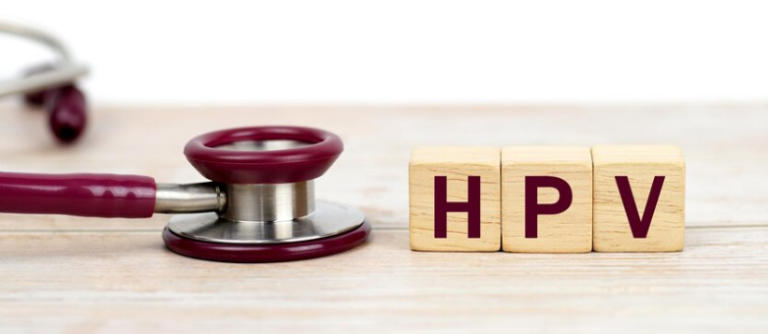
The HPV vaccine stands as a crucial tool in the fight against HPV-related diseases. By bolstering the body’s immune response against the virus, the vaccine significantly reduces the risk of developing genital warts and certain cancers, particularly cervical cancer. Vaccination not only protects individuals but also contributes to community immunity, reducing the overall prevalence of HPV infections.
Understanding HPV Vaccine Side Effects
Like any clinical mediation, the HPV antibody can cause incidental effects. It’s essential to understand these potential reactions to make informed decisions about vaccination. While most side effects are mild and temporary, some individuals may experience more severe reactions, albeit rarely.
Common Side Effects of the HPV Vaccine
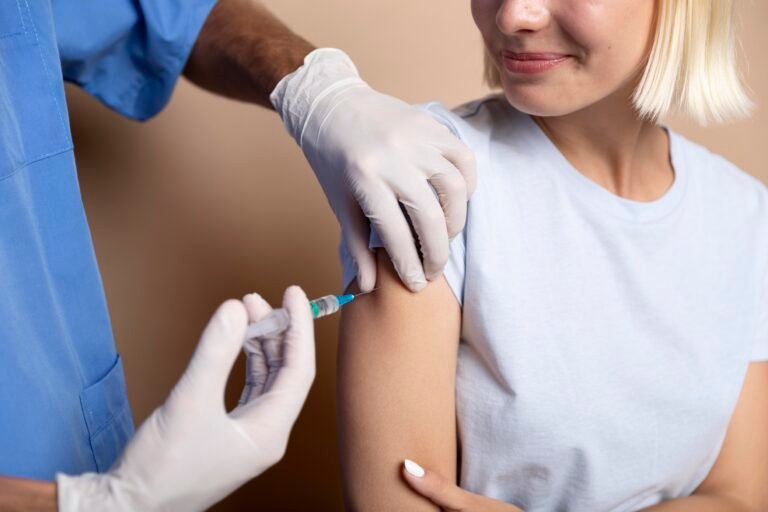
The most common side effects of the HPV vaccine include pain, redness, or swelling at the injection site. Some individuals may also experience mild fever, headache, fatigue, or muscle aches shortly after receiving the vaccine. These symptoms typically resolve within a few days and can be managed with over-the-counter medications if needed.
Rare Side Effects of the HPV Vaccine
Although rare, certain more severe side effects have been reported following HPV vaccination. These include allergic reactions, such as hives or difficulty breathing, as well as fainting spells shortly after receiving the vaccine. While alarming, these reactions are exceedingly uncommon and are outweighed by the vaccine’s significant benefits in preventing HPV-related diseases.
Debunking Myths about HPV Vaccine Side Effects
Misinformation and misconceptions surrounding vaccine safety abound, contributing to vaccine hesitancy in some communities. It’s crucial to address these myths and provide accurate information about the safety profile of the HPV vaccine. Extensive research and real-world data affirm the safety and efficacy of HPV vaccination, debunking unfounded claims about severe side effects.
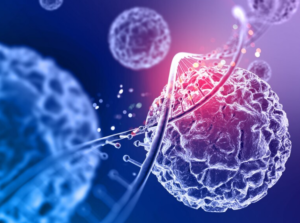
Safety of the HPV Vaccine
Numerous rigorous studies have demonstrated the safety of the HPV vaccine. Health authorities and regulatory bodies worldwide, including the Centers for Disease Control and Prevention (CDC) and the World Health Organization (WHO), continue to monitor the vaccine’s safety profile closely. The benefits of vaccination far outweigh the risks, making it a vital component of preventive healthcare.
Who Should Get the HPV Vaccine?
The HPV immunization is suggested for both males and females aged 9 to 45. Ideally, individuals should receive the vaccine before becoming sexually active to maximize its effectiveness. However, even those who have already been exposed to HPV or have had HPV-related conditions can still benefit from vaccination, as the vaccine protects against multiple HPV strains.
When Should One Get the HPV Vaccine?
It’s recommended that children receive the HPV vaccine around age 11 or 12, before they become sexually active. Vaccination at this age ensures optimal protection against HPV-related diseases before potential exposure. However, individuals who missed vaccination during adolescence can still catch up and receive the vaccine up to age 45.
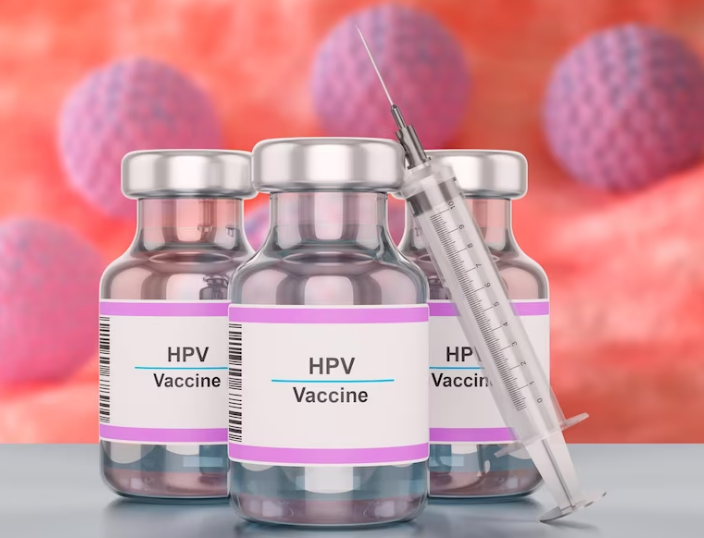
Vaccine Dosage and Schedule
The HPV immunization is normally regulated as a progression of a few portions, contingent upon age and immunization type. For adolescents aged 9 to 14, two doses are recommended, spaced several months apart. Individuals aged 15 and older, as well as those with weakened immune systems, may require three doses to achieve optimal immunity.
Precautions and Contraindications
While the HPV vaccine is generally safe for most individuals, certain precautions and contraindications exist. Individuals with severe allergies to any vaccine component should avoid vaccination. Pregnant individuals should consult with their healthcare provider before receiving the vaccine, although studies have not shown any adverse effects on pregnancy outcomes.
Addressing Concerns about Vaccine Safety

It’s natural for individuals and parents to have concerns about vaccine safety, given the abundance of misinformation circulating online and in the media. Healthcare providers play a crucial role in addressing these concerns, offering evidence-based information and reassurance about the safety and efficacy of the HPV vaccine.
HPV Vaccine and Pregnancy
Research indicates that the HPV vaccine is safe for pregnant individuals and their unborn babies. However, vaccination during pregnancy is not routinely recommended due to limited data on its safety in this population. Pregnant individuals who inadvertently receive the HPV vaccine should not be alarmed, as studies have not shown any increased risk of adverse pregnancy outcomes.
Conclusion
In conclusion, the HPV vaccine represents a groundbreaking advancement in preventive healthcare, offering protection against genital warts and HPV-related cancers. While mild side effects may occur, the overwhelming majority of individuals tolerate the vaccine well, and its benefits in preventing HPV-related diseases far outweigh any potential risks.
FAQs about HPV Vaccine Side Effects
Common side effects of the HPV vaccine include pain, redness, or swelling at the injection site. Some individuals may also experience mild fever, headache, or fatigue shortly after receiving the vaccine. These side effects normally resolve on their own inside a couple of days.
Serious side effects from the HPV vaccine are extremely rare. However, in very rare cases, individuals may experience severe allergic reactions or fainting shortly after receiving the vaccine. It’s important to seek medical attention if you experience difficulty breathing, hives, or dizziness after vaccination.
There is no evidence to suggest that the HPV vaccine causes infertility or reproductive problems. Extensive research and clinical trials have shown that the vaccine is safe and effective for both males and females.
Studies have not found a causal relationship between the HPV vaccine and Guillain-Barré syndrome (GBS). The risk of developing GBS after receiving the vaccine is extremely low and comparable to the background rate of GBS in the general population.
If you experience any unexpected or concerning side effects after receiving the HPV vaccine, it’s important to contact your healthcare provider immediately. They can assess your side effects and give proper clinical counsel or treatment.
Extensive research and monitoring have shown that the HPV vaccine is safe and does not cause long-term health problems. The benefits of vaccination in preventing HPV-related cancers far outweigh any potential risks associated with the vaccine.
Yes, it is generally safe to receive the HPV vaccine at the same time as other routine vaccines. The Centers for Disease Control and Prevention (CDC) recommends that individuals receive all recommended vaccines according to the recommended schedule, including the HPV vaccine.
Most individuals can safely receive the HPV vaccine. However, individuals who have had a severe allergic reaction to a previous dose of the HPV vaccine or any component of the vaccine should not receive further doses. It’s important to discuss any concerns or medical conditions with your healthcare provider before receiving the vaccine.
Research studies have not found a causal relationship between the HPV vaccine and autoimmune disorders. The vaccine has been extensively studied and continues to be monitored for safety, and no evidence suggests a link between the vaccine and autoimmune disorders.
Most side effects of the HPV vaccine are mild and temporary, lasting only a few days. Pain, redness, or swelling at the injection site usually resolve within a few days, while mild fever, headache, or fatigue may last for a short time after vaccination.
The vast majority of side effects from the HPV vaccine are mild and temporary, such as soreness at the injection site or mild fever. Severe reactions are extremely rare.
No evidence suggests that the HPV vaccine causes infertility in males or females. Extensive research supports the safety of the vaccine in this regard.
Fainting spells can occur after any vaccination, including the HPV vaccine, due to anxiety or pain associated with the injection. However, such reactions are temporary and pose no long-term health risks.
Individuals who experience symptoms of a severe allergic reaction, such as difficulty breathing or swelling of the face or throat, should seek immediate medical attention. Healthcare providers are trained to manage such emergencies.
Extensive clinical trials and post-marketing surveillance have not identified any long-term health problems associated with the HPV vaccine. It remains a safe and effective tool in preventing HPV-related diseases.

10 Proven Benefits of Bananas for Health and Well-being
Bananas are known for their natural sweetness, ease of peeling and rich nutrition. This makes them one of the most commonly consumed fruits in the world. Though bananas originated in
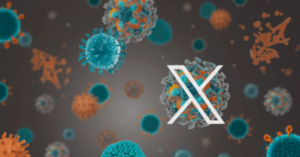
Disease X: The Next Pandemic?
Emerging infectious diseases pose one of the greatest threats to human health and global stability. One of them, “Disease X” has intrigued scientists and WHO, as it represents the potential

The Remarkable Benefits of Eating Acorn Squash in Winter
Acorn squash has all the qualities that make it special. Winter calls for warmth, comfort, and nutrition, and acorn squash provides all of these. This vegetable is not just delicious

Omega-3 Fatty Acids
Omega-3 fatty acids play a very important role in the nutrients needed to maintain overall health. As people are getting to know about it, its popularity is increasing day-by-day. These